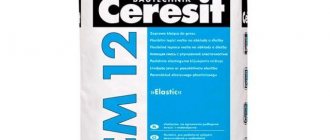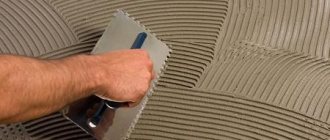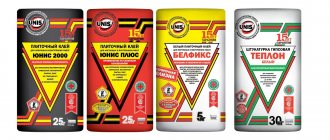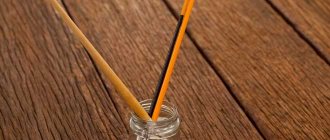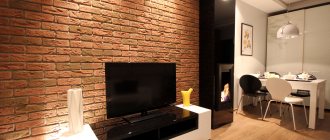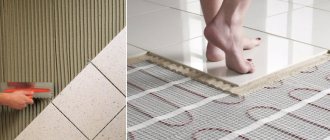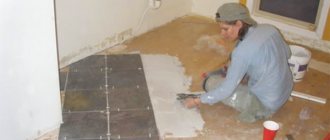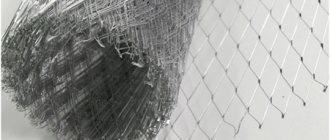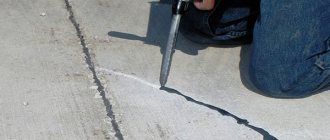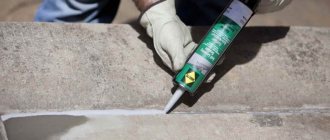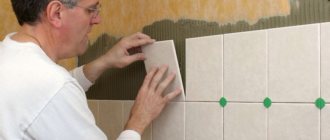Is the old coating no longer so bright and no longer pleasing to the eye? You can update your yard, garden paths or other area with the help of modern paving stones, made in different shapes and types.
Paving stones are popular among buyers. It has an aesthetic appearance and good characteristics. It can be laid in summer cottages, in city parks or other areas with high and low traffic.
Paving stones can withstand heavy loads and intensive use, and are resistant to temperature changes and moisture. But in order for the coating to serve for many years, you need to take care of the base and binder for it.
What to do if the old coating is still durable, but already has an unattractive appearance? It can be removed, but you need to spend a lot of time and effort. In order not to remove the old coating, but at the same time lay new tiles, buy special glue.
An adhesive base is available for sale for interior or exterior use. This tool allows you to lay tile products of any type and size in a horizontal or vertical position. The mixture can be dry or sold as a ready-made solution in 5-20 kg jars. The adhesive substance holds the product and the concrete base together in a matter of hours, creating a new, durable surface.
Adhesive compositions differ not only in components, but also in properties. When choosing a material, you should know what requirements it must meet.
Choosing adhesive for paving slabs
When choosing a composition, keep in mind that the requirements for such products are higher than for substances for interior work. Neglecting one of the required characteristics may result in the tile “falling off”.
The composition for paving stones should have:
- High-quality basis;
- Resistance to negative temperatures;
- Suitable for paving stones;
- Good elasticity after hardening;
- High adhesion;
- Suitable for outdoor or indoor use.
Only if these properties are present can the product be called high-quality.
Glue base
To lay paving products on the street, choose substances whose main components are:
- Cement base (cement, sand, plasticizers). Hydrophobic stabilizing additives or liquid glass can be used as a plasticizer. Such compositions can be purchased dry in paper bags, packaged 25 kg and marked C1 or C2. They are widely used not only when laying paving slabs, but also for any external and internal work. The mixture has a low price, as well as good adhesive properties, which makes it in demand among buyers.
- Polymer adhesives. They are water-soluble ground resins. The polymer composition can be one-component, two-component or multi-component (mixed). The polymer composition is characterized by rapid fixation and high elasticity. It is sold ready-made in plastic containers of various sizes and is marked D1-D2. The solution can be used for interior and exterior work. Finishing with polymer adhesives is possible on a vertical wall. The solution does not need to be diluted with water, but can be used immediately after purchase.
With high adhesion, can be used for Knauf Fliesen Plus ceiling tiles
The reinforced composition makes it possible to glue various types of material to vertical surfaces and even mount ceiling tiles. Moreover, there is no difference either in the weight of the cladding or in the structure of the base on which it will be mounted.
pros
The composition of Knauf Fliesen Plus is unique. Main characteristics of the enhanced raster formula:
- Suitable for indoor and outdoor decoration.
- It is resistant to moisture and has a water-repellent effect.
- Insensitive to low temperatures.
- Combines with stone, porcelain tiles, tiles, mosaics.
- Can be used on cement, concrete substrates, as well as plasterboard and plaster.
With all the positive aspects of the composition, the undeniable advantage of Knauf Fliesen Plus is its efficiency. Due to the high degree of adhesion, the solution is applied in a thin layer.
Frost resistance
When purchasing a dry or liquid mixture, you must be sure that during frosts or sudden temperature changes, the paving stones will remain in place and the adhesive will not lose its properties. When purchasing, read the labels; manufacturers often indicate the area of application of the product and the temperature at which it should be used.
To increase frost resistance, manufacturers add liquid glass or hydrophobic additives. If there are a lot of hydrophobic additives, then a minimum of water is needed. The presence of liquid glass significantly increases the number of defrosting and freezing cycles. The purchased composition must withstand 100 cycles of freezing and thawing, while maintaining its original properties.
Attention:
Do not confuse frost resistance and the minimum temperature for using a substance. A substance with a minimum permissible temperature below zero is no different from compositions that must be applied at temperatures above zero.
Features of installation of porcelain stoneware
In outdoor conditions, porcelain stoneware and clinker tiles are popular finishing materials. These coatings are resistant to temperature changes, high humidity and other adverse effects.
Porcelain tiles and clinker are not porous structures, so moisture does not penetrate into them. However, this characteristic also plays a negative role. After all, for the best adhesion, the glue must penetrate deep into the material, but in the case of porcelain stoneware this does not happen.
Adhesive for porcelain tiles must meet several factors:
- increased adhesion;
- presence of elasticity;
- resistance to low temperatures.
However, with all the positive characteristics of the glue, when installing porcelain tiles, it is necessary to use some tricks. For example, apply the solution to both surfaces: the base and the tile. This way the grip will be as effective and durable as possible.
Elasticity after hardening
When walking or driving, there is a load on the paving stones. If the coating is very hard, then under intense loads the material will quickly become unusable. The elasticity of the composition will create a shock-absorbing cushion and will transfer the load to the concrete base, maintaining the integrity of the tile product.
The elasticity indicator can be seen on the packaging. Elasticity is indicated as S1-S2, where:
S1 - means that the glue can withstand a deflection of 2.5 mm.
S2 - indicates that the substance has high elasticity, so it can be used for surfaces with heavy loads. The adhesive and tiles can withstand deflection up to 5 mm.
Tiles with elasticity index S2 will retain their appearance for a long time, which means they will last longer.
Varieties
The stores offer adhesive masses, which are grouped by type:
- Universal. Copes with gluing small and medium-sized slabs inside the building and on the street side. But it is not recommended to carry out work if frost reaches low temperatures.
- Intensive. Used for tiling large slabs over 30 cm. Excellent for laying floor tiles. It can withstand pressure and increased loads, but it is difficult to classify as resistant to frost.
- Moisture resistant. An excellent option for covering walls and floors in rooms with high humidity (bathroom, kitchen, etc.). It is not recommended to use for external cladding at sub-zero temperatures.
- Heat resistant. Used at elevated temperatures (pasing, laying fireplaces, stoves, etc.).
- Frost-resistant. Winter version of glue. Thanks to additives, the adhesive can withstand temperature changes, is flexible, and does not deform. Some brands can withstand temperatures down to -50 degrees.
Glue class
Each composition has its own class. Adhesive for paving slabs is divided into 2 classes:
- Class 1 – adhesive mixture intended for light tiles. Used for finishing work inside heated rooms. It can also be used in underground passages or shopping centers together with underfloor heating systems.
- Class 2 – a mixture that can be used for any outdoor work. It provides strong grip on light or heavy paving stones.>
For any outdoor work, choose a class 2 substance. Its cost will be higher than 1st class funds, but this price is justified. If you decide to save on class, you will lose much more, since the tiles will not stay in place for long, and very soon you will have to do the repairs again.
Adhesive brands for paving slabs
The construction market offers a large number of compounds that are suitable for fixing paving slabs. Some of the best are:
- Cerrasite adhesive mixtures from the manufacturer Ceresit. Substances are sold in dry form and are sold in paper bags. Before use, the product should be diluted with water and brought to the desired consistency. Such products are intended for external use. To choose the right solution, read the manufacturer's recommendations.
- Knauf-Fliesen. The mixture is used for natural or artificial stone. Can be used for laying paving stones indoors and outdoors. Provides proper quality of adhesion to vertical as well as horizontal surfaces. It goes on sale in dry form, packaged in bags. Requires preliminary preparation before use.
- OSNOVIT T-14 (AC14) from the company Osnovit. Designed for cladding all types of surfaces with natural stone, as well as clinker or concrete paving stones. The mixture can be used for external and internal work. It is supplied dry and therefore requires preliminary preparation.
On sale you can find universal mixtures that are suitable for all types of paving stones and bases. But, such options should not be chosen since the strength of their adhesive connection will be lower.
When the adhesive has been chosen, all that remains is to lay the tiles.
How to lay tiles with adhesive
By following the technology of laying tile material, you can perform high-quality laying of paving stones yourself. To do this you need:
- Clean the base from dirt and dust. In order for the reaction of the concrete base and the adhesive to be quick, the surface must be clean. For cleaning, you can use the hydro-jet method. A suitable tool for this would be a Karcher type home appliance.
- If paving stones are laid on garden paths, then it is necessary to provide formwork. Wooden formwork installed along the contour will not only allow you to lay the paving stones evenly, but also avoid unnecessary consumption of material.
- Preparation of the composition. To properly dilute the composition, read the manufacturer's instructions. Follow the recommendations strictly. Mix the dry mixture with water in the amount specified by the manufacturer. Do not try to save money, as you will end up with a completely ineffective solution.
- Apply the binder composition to the base. This can be done using a notched trowel. It is not necessary to lubricate the entire concrete surface, but only the part where the tiles will be laid. The bonding agent “sets” quickly, so if applied to the entire surface at once, you will not be able to properly glue the paving stones. Laying the tiles. Place the selected samples on a greased surface and press down slightly. We leave a small gap between the tiles, which will be filled with adhesive upon completion of installation.
Popular adhesives
You can glue mosaics or tiles in the pool using domestic or imported compounds. The most popular are adhesives (Ceresit). Here are the most famous:
- for ceramic tiles - Ceresit SM-16, SM-17 and SM-117, as well as “Unis Pool”;
- for marble and glass mosaics - IVSIL MOSAIK, Ceresit SM-115;
- for glazed clinker tiles - IVSIL AQUA, Ceresit SM-117;
- for porcelain tiles - “Yunis Pool”, “Osnovit Maxiplix T-16”.
Other brands of adhesives that are worth choosing include:
- "Farwest Pool C2TE25". A product based on cement and sand, finely dispersed, suitable for fastening ceramics and any type of mosaic, natural and artificial stone. It is characterized by high frost resistance - up to 50 cycles, excellent plasticity, and water resistance. The glue is used at temperatures from -50 to +60 degrees.
- “Pool TM-16 will win.” A dry mixture of quartz sand and cement with the addition of special modifiers. If you are going to glue mosaics or tiles onto flexible plastic bases, instead of water you need to add “ElastoCem Hardolite” to the mixture.
- PCI Nanolight. Highly elastic adhesive in the form of a dry mass, produced in two colors (there are white and gray compositions). It is characterized by absolute inertness to chemicals and salts, as well as the highest water resistance.
- PCI Collastic. Ready-made polyurethane composition that does not require preliminary priming. It is allowed to grout the seams 6 hours after gluing the tiles. Due to its elasticity, the composition neutralizes the stress of the tile and protects the surface from deformation.
Work with these adhesives should be carried out at temperatures of +5...+30 degrees and humidity up to 75%.
How to make adhesive for paving slabs yourself
In order to properly lay garden paths, arrange a local area, a parking lot or other area, it is not necessary to buy glue for paving slabs. To make the substance at home you will need:
- Cement PC-400;
- Clean sifted sand;
- Plasticizer.
Liquid Cerrazit SS 83 can be used as a plasticizer. It gives the mixture strength and mobility. The amount of additive is indicated on the packaging. Water is added to the resulting mixture in small portions. Water and the dry mixture are diluted to the required proportions, and then the solution is used for its intended purpose.
